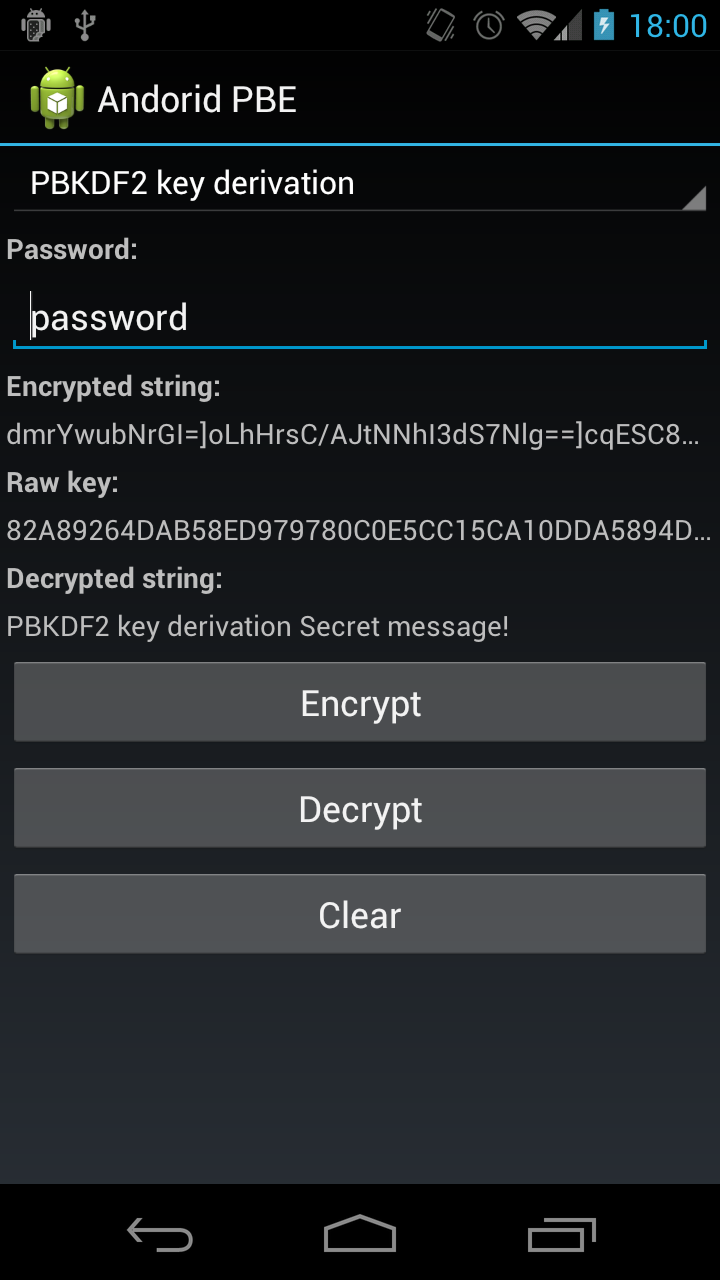Aes 128 Random Key Generator
16.12.2020 admin
Random Key Generator for Passwords, Encryption Keys, WPA Keys, WEP Keys, CodeIgniter Keys, Laravel Keys, and much more. Key generator This page generates a wide range of encryption keys based on a pass phrase. Passphrase: aes-128-cbc: aes-128-cfb: aes-128-cfb1: aes-128-cfb8: aes-128-ecb. Key generator This page generates a wide range of encryption keys based on a pass phrase. Passphrase: aes-128-cbc: aes-128-cfb: aes-128-cfb1: aes-128-cfb8.
This class provides the functionality of a secret (symmetric) key generator.Key generators are constructed using one of the getInstance class methods of this class.
KeyGenerator objects are reusable, i.e., after a key has been generated, the same KeyGenerator object can be re-used to generate further keys. Git generate ssh key windows 8.
There are two ways to generate a key: in an algorithm-independent manner, and in an algorithm-specific manner. The only difference between the two is the initialization of the object:

Aes 128 Random Key Generator Download
- Algorithm-Independent Initialization
All key generators share the concepts of a keysize and a source of randomness. There is an
initmethod in this KeyGenerator class that takes these two universally shared types of arguments. There is also one that takes just akeysizeargument, and uses the SecureRandom implementation of the highest-priority installed provider as the source of randomness (or a system-provided source of randomness if none of the installed providers supply a SecureRandom implementation), and one that takes just a source of randomness.Since no other parameters are specified when you call the above algorithm-independent
initmethods, it is up to the provider what to do about the algorithm-specific parameters (if any) to be associated with each of the keys. - Algorithm-Specific Initialization
For situations where a set of algorithm-specific parameters already exists, there are two
initmethods that have anAlgorithmParameterSpecargument. One also has aSecureRandomargument, while the other uses the SecureRandom implementation of the highest-priority installed provider as the source of randomness (or a system-provided source of randomness if none of the installed providers supply a SecureRandom implementation).
In case the client does not explicitly initialize the KeyGenerator (via a call to an init method), each provider must supply (and document) a default initialization.
Every implementation of the Java platform is required to support the following standard KeyGenerator algorithms with the keysizes in parentheses:

Aes 128 Key Generator
- AES (128)
- DES (56)
- DESede (168)
- HmacSHA1
- HmacSHA256